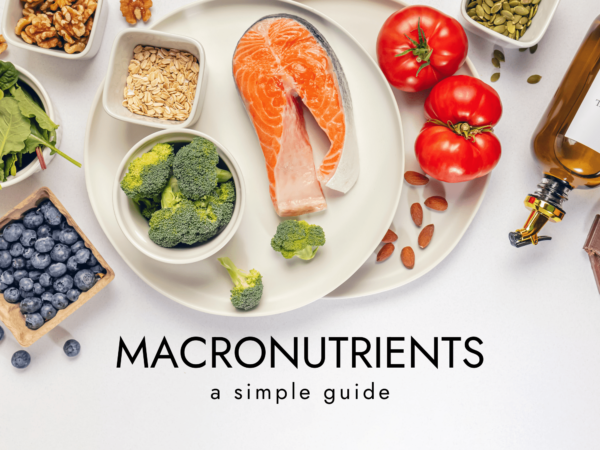Explore how achieving longevity through gut health is possible with our in-depth look at the crucial role of the gut microbiome in overall well-being and lifespan extension.
The Gut’s Hidden Superpower
As someone deeply passionate about gut health and its impact on longevity, I’m excited to share insights into this fascinating topic. Understanding our gut’s critical role in overall well-being is more than just a health issue; it’s a journey into a hidden world within us.
In this era of advancing medical science, the gut is emerging as a key player in shaping our health and longevity. This isn’t just about avoiding illness; it’s about tapping into the gut’s hidden superpower to unlock a fuller, more vibrant life.
The intricate relationship between our gut and overall health transcends traditional understanding, placing gut health at the forefront of preventative and personalized medicine.

The Marvel of Gut Health
Imagine your gut as a bustling metropolis teeming with trillions of microbes. These tiny superheroes are not just passive residents; they actively contribute to our health.
This ecosystem, known as the gut microbiome, is a pivotal factor in our overall well-being, influencing everything from digestion to immunity. A healthy gut is like the conductor of your body’s orchestra, ensuring every system operates harmoniously. Each microbe plays a specialized role, contributing to a finely balanced ecosystem.
This bustling community does more than digest food; it’s a linchpin in our body’s defense system, a key contributor to our mental health through the gut-brain axis, and a vital player in nutrient absorption and waste elimination.
Historical Perspective on Gut Health
Historically, gut health has been a topic of interest in various cultures, with ancient practices often intuitively aligning with what modern science is only now beginning to understand. From using fermented foods in traditional diets to early medical theories linking gut function with overall health, our ancestors had a rudimentary yet significant grasp on achieving longevity through gut health.
Scientific Research and Breakthroughs
Recent scientific breakthroughs have shed new light on the gut microbiome’s complexity. Studies reveal how certain gut bacteria influence digestive health, immune responses, and mental health. These insights lead to innovative approaches to treating and preventing numerous health conditions, extending the quality and length of our lives, and achieving longevity through gut health.

Diet and Gut Health
Diet plays a crucial role in shaping our gut microbiome. Foods rich in fiber, like fruits and vegetables, and fermented foods, like yogurt and kimchi, promote a diverse and healthy gut flora. Conversely, processed foods and high-sugar diets can disrupt this balance, leading to health issues.
Beneficial Foods and Their Mechanisms:
- Fiber-Rich Foods: Foods like fruits, vegetables, whole grains, nuts, seeds, and legumes are rich in soluble and insoluble fiber. These fibers serve as prebiotics, feeding beneficial gut bacteria and promoting bowel regularity.
- Fermented Foods: Yogurt, kimchi, sauerkraut, and kefir introduce beneficial probiotics into the gut and enhance microbiome diversity, aiding in digestion and boosting the immune system.
Impact of Specific Food Groups:
- Polyphenol-Rich Foods: Berries, nuts, olive oil, and green tea are high in polyphenols, antioxidants that support gut health by reducing inflammation and nurturing beneficial bacteria.
Adverse Effects of Certain Diets:
- Processed and High-Sugar Diets: These can lead to an imbalance in gut bacteria, known as dysbiosis. High sugar intake, artificial sweeteners, preservatives, and additives can negatively impact gut health, potentially leading to increased inflammation and digestive disorders.
Role of Dietary Fats:
- Different types of fats have varied effects on the gut. Omega-3 fatty acids, found in fish, flaxseeds, and walnuts, are beneficial for gut health, whereas excessive intake of saturated and trans fats can be harmful.
Importance of Hydration:
- Adequate water intake is essential for digestive health. It aids in nutrient absorption and helps maintain optimal conditions for gut bacteria.
Practical Dietary Tips:
- Incorporating gut-friendly foods into daily meals can be simple. Add fermented foods daily, and replace processed snacks with nuts or fresh fruits.
- Experiment with diverse whole foods to increase fiber intake and support your gut microbiome.
Personalized Nutrition:
- Understanding that individual responses to foods can vary greatly, personalized nutrition is critical. Pay attention to how your body reacts to different foods and consider temporary dietary changes or elimination diets to identify foods that might be problematic for your gut health.
By embracing these dietary practices, we can significantly influence the health and composition of our gut microbiome, which in turn impacts our overall health and contributes to longevity through gut health. Adopting a balanced, varied diet, rich in natural, unprocessed foods is key to nurturing a healthy gut ecosystem and enhancing our quality of life.

Key Factors for Achieving Longevity Through Gut Health
Gut health and longevity are intertwined like the threads of a tapestry. The secret to unlocking a long and healthy life lies within our gut. Maintaining a balanced gut microbiome plays a crucial role in this quest.
As we age, our gut health can influence how gracefully we transition through the years, impacting everything from our energy levels to our body’s ability to fend off diseases. Studies increasingly show how a balanced gut microbiome can slow aging, reduce the risk of age-related diseases, and improve quality of life in our later years.
By nurturing our gut health, we’re fine-tuning our body’s mechanisms to age more gracefully, boosting our vitality and resilience as we age. This is the essence of achieving longevity through gut health.
The Gut-Brain Connection
The gut-brain axis highlights how gut health can impact mental and emotional well-being. A healthy gut microbiome has been linked to improved mood, reduced stress levels, and better cognitive function.
EXPLORE MORE: DEEPENING YOUR UNDERSTANDING OF GUT HEALTH
- For a deeper exploration of this topic and to discover more about the profound impact of gut health on longevity and well-being, read more at Spartan MyLifestyle on Gut Health and Longevity.
- Interested in learning about fiber-rich foods that can boost your gut health? Visit Spartan MyLifestyle on Dietary Fiber-Rich Food.
- And if you’re looking for gut-friendly food ideas for your next party, check out Spartan MyLifestyle on Gut-Friendly Foods for Parties.
- Understanding and supporting the gut-brain connection is vital for holistic health, influencing everything from our mood and stress levels to cognitive functions and overall mental health.
Practical Tips for Improving Gut Health
Improving gut health involves more than just dietary changes. Regular exercise, adequate hydration, stress management, and quality sleep are equally important. Probiotics and prebiotics remain essential, but a holistic approach to lifestyle is crucial for optimal gut health.
- Regular Exercise: Engaging in activities like aerobic exercises and yoga can improve digestion and reduce stress, benefiting gut health.
- Adequate Hydration: Drink water throughout the day, starting with a glass in the morning, to aid digestion and maintain a healthy gut environment.
- Stress Management: Techniques like mindfulness, meditation, and deep breathing exercises can positively influence gut health by reducing stress levels.
- Quality Sleep: Establish a consistent sleep schedule and create a restful sleeping environment to support the gut’s natural repair processes.
- Balancing the Gut Microbiome: A balanced microbiome is essential for gut health, influenced by our overall lifestyle choices.
- Avoiding Harmful Substances: Reduce the intake of alcohol, avoid smoking, and be cautious with medications that might disrupt gut health.
- Regular Health Check-Ups: Consult healthcare professionals for regular screenings and advice tailored to your gut health needs.
- Mindful Eating: Practice eating slowly and mindfully, chewing food thoroughly to aid digestion.
- Gut Health Supplements: Consider supplements like probiotics or digestive enzymes as needed, but always consult a healthcare provider first.
- Gut-Friendly Cooking: Try recipes and cooking methods that are gentle on the gut, focusing on preserving nutritional value.
Incorporating these practices into your daily routine can significantly improve gut health, contributing to overall well-being and longevity through gut health.
Challenges and Future Directions
Despite advancements, challenges remain in fully understanding the gut microbiome. Future research aims to unravel the complex interactions within the gut ecosystem and how they influence overall health. We are just scratching the surface regarding personalizing gut health strategies and understanding how individual microbiome differences impact health outcomes. The future holds promise for targeted therapies and bespoke dietary recommendations based on one’s unique gut flora.

Achieving Longevity Through Gut Health: Probiotics and Prebiotics
Our journey to longevity starts with understanding the role of probiotics and prebiotics, the gut’s mighty protectors. Probiotics are beneficial bacteria that aid digestion and strengthen our immune system, while prebiotics are dietary fibers that nourish these beneficial bacteria. Together, they create a dynamic duo in our gut ecosystem.
Sources and Benefits:
- Probiotic-rich foods include yogurt, kefir, sauerkraut, and kombucha. Prebiotics are found in foods like onions, garlic, asparagus, bananas, and whole grains.
- These elements contribute to more than just gut health; they reduce inflammation, support mental health, and can lower the risk of chronic diseases.
Mechanisms and Effects:
- Probiotics and prebiotics work together to maintain a healthy gut lining, balance gut flora, and modulate the immune system.
Personalized Approach and Supplements:
- The effectiveness of probiotics can vary depending on individual gut microbiomes, suggesting a customized approach.
- While natural food sources are preferable, supplements can be beneficial in specific scenarios.
Integrating into Diet and Safety:
- Conserving a diverse range of probiotics and prebiotics in your diet is key for long-term gut health.
- Be mindful of potential side effects and consult healthcare providers, especially those with certain health conditions.
Gut Health and Longevity: The Role of Probiotics and Prebiotics
By understanding and embracing the roles of probiotics and prebiotics, we can significantly enhance our gut health, which supports our body’s ability to repair itself, fend off pathogens, and maintain a robust immune response, and in our quest for achieving longevity through gut health.
It’s about creating a sustainable, nourishing environment in our gut for long-term health and well-being.

Conclusion: Embracing Lifestyle for Achieving Longevity Through Gut Health
Embracing the connection between gut health and longevity is not just about dietary changes but a lifestyle shift.
It’s about recognizing and nurturing the immense power within our gut. As we delve deeper into this relationship, we uncover the potential for a healthier, longer life underpinned by a well-balanced gut ecosystem. Embracing this link goes beyond mere nutrition; it’s a holistic approach to life.
Understanding and nurturing our gut health is a proactive step towards a future where longevity and wellness are intertwined. The journey towards a harmonious gut ecosystem is a life filled with vitality, resilience, and well-being.





